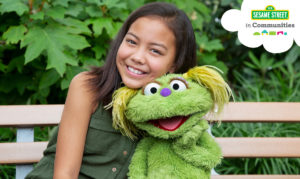How to Talk to Your Child About Coronavirus: From Child Mental Health Expert Annmarie Arensberg, LCSW, LSCSW

In the world right now, life is increasingly stressful and full of new challenges and unknowns related to COVID-19. For a child, it can be especially difficult to understand what is happening. It’s easy to become confused and feel scared, and all kids experience and process change differently. Some kids have an easier time coping with uncertainty and change while others may experience increased levels of stress and anxiety.

We sat down with Annmarie Arensberg, LCSW, LSCSW, Vice President of Clinical Advancement of Camber (previously KVC Hospitals) for advice on how parents and caregivers can help kids through these challenging times. Arensberg said open and honest communication between parents and children is critical at a time like this. She provided several specific tips for how parents and caregivers can talk to kids about the coronavirus.
Check out more free, therapeutic resources to help support your mental health during COVID-19 here.
How to Talk to Your Child About the Coronavirus (COVID-19):
- Start by asking them what they’ve heard. Then you can correct any misinformation they may have heard. Try not to give more details than needed so that they don’t feel overwhelmed.
- Remind them that not everything they hear is true, so it’s important that they talk to a trusted adult when they have questions.
- Give them space to share their fears and concerns. Listen closely and tell them it’s okay to be confused or worried.
- Speak calmly and reassure them. It’s important for your child to feel their environment is safe. When you speak calmly about topics that may be scary, you will help them feel more at ease.
- Keep information simple and easy for them to understand—using visuals can be a great tool. Focus on age-appropriate words and topics.
- Let them ask questions. Remind them there are no “dumb” or “silly” questions. Reassure them you won’t judge them and that they can share anything with you.
- Help them feel in control by reminding them of things they can do to stay healthy (washing their hands for 20 seconds, not touching their face, keeping a safe distance from others).
- Help them understand the basic concepts of germ spreading (cover your mouth when you cough, sneeze into your elbow, don’t share hygiene products).
- The news can be overwhelming. Watch or read age-appropriate news together and have a conversation about the information.
- Help them understand how their day-to-day routine might be different now and let them give input on the development of a new daily routine or schedule.
- Discuss ways they can stay socially connected. Kids are used to seeing their friends to build those important social and emotional connections. Talk about who they want to remain in contact with during this time and ways to facilitate that (virtual playdates, sending friends emails and letters, talking on the phone).
- Ensure your child is not feeling isolated. Facilitate connection through socialization time as a family, keeping a regular schedule, getting fresh air and exercising.
- Offer comfort, honesty, and an “open-door policy” any time they have questions or want to talk about the coronavirus.
“It is important to cultivate an open dialogue with your child, so they feel comfortable asking questions, sharing their concerns and getting factual information from a trusted source – their parent.” — Arensberg

Sesame Street in Communities
Sesame Street in Communities has also announced that it will be creating new resources to help guide families through these challenging times, including this guidance with more ideas on how to talk to your child about COVID-19. Learn more at SesameStreetinCommunities.org/HealthEmergencies.
The Impact on Children’s Mental Health
In addition to understanding how to talk to your child about the coronavirus, it’s important to be asking them how they’re doing. Ask them what emotions they’re feeling and to describe those feelings. Let them know that it’s okay if they are feeling things like sadness, fear, or anger. It’s important that their feelings aren’t minimized and that they feel comfortable opening up.
About Camber (Previously KVC Hospitals)
For 30 years, Camber has helped thousands of kids and teens achieve mental health wellness through expert and compassionate treatment. Camber uses a patient-centered approach that works to heal the whole family unit when a child is struggling with depression, anxiety, suicidal thoughts, self-harming, the impacts of trauma, and other mental health needs. To learn more about our services including our internationally renowned expertise in trauma-informed care, visit cambermentalhealth.org or call us 24/7 at 913-890-7468.




